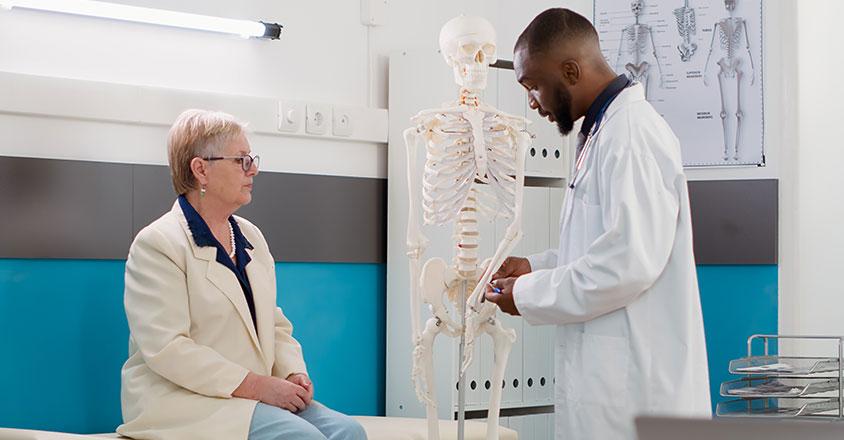

Are women more at risk for developing osteoporosis than men?
Osteoporosis is a chronic disease that causes bone tissue loss and weakness and is often referred to as a “silent” disease. Historically, it is proven that women are more prone to osteoporosis due to their hormonal changes and thinner body frames. This leads to a five times greater risk compared to men. There are also different reasons why women are more prone to osteoporosis and what they can do to prevent their pain.
Symptoms and causes
The reason osteoporosis is called a “silent” disease is because there are no symptoms until you experience an injury. Although osteoporosis has been linked to severe back pain, loss of height or hunched posture. According to the National Institute of Arthritis and Musculoskeletal and Skin Diseases, some factors that could increase your risk for osteoporosis include:
Gender
Age
Body size
Race
Family history
Changes to hormones
Diet
Other medical conditions
Medications
Lifestyle
How to prevent and treat osteoporosis
Prevention and treatment for osteoporosis can happen before you experience any pain or symptoms, especially if you are at higher risk for osteoporosis. It all starts with nutrition, exercise and lifestyle changes. According to the University of Chicago Medicine, this includes:
Maintaining a well-balanced diet with foods rich in calcium, vitamin D and other nutrients that are good for bone health.
Learning fall prevention techniques, including avoiding activities that increase the risk of falls.
Exercise regularly by walking, running, dancing and balance training.
Quit smoking, limit alcohol intake and decrease substance abuse.
Remember, these can help prevent osteoporosis symptoms, but if symptoms appear or continue, please contact your doctor to find other solutions that may work for you.
Overall, women are more prone to osteoporosis than men. If you have a family history of osteoporosis, talk to your doctor about when to get a bone density test. It is better to take steps now to prevent any pain, especially if you have a family history of osteoporosis.
Ready to get healthy?
Sign up for our digital newsletters to receive health tips, recipes, success stories for inspiration and information about new doctors to help you on your journey to better health.
Genesis HealthCare System’s Health and Wellness content conveniently provides accurate and helpful information. Your health history and current health may impact suggestions provided through our Health and Wellness content. Although we hope this information is helpful, it is not a substitute for your doctor's medical advice. Before making any significant changes, please consult your doctor.



